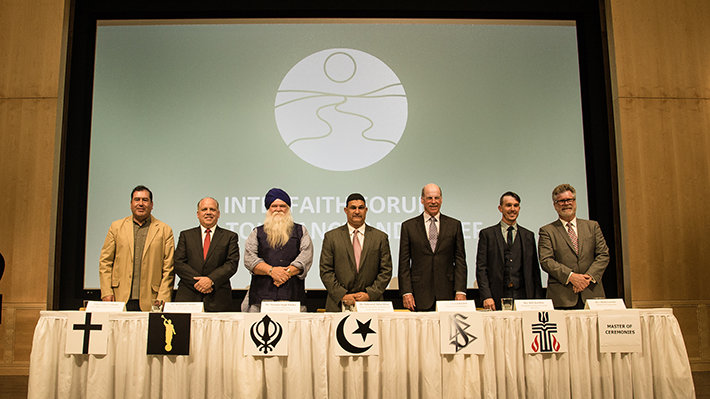
-
HOME
-
WHAT IS STANDOur Mission Our Values Our Help Contact
-
WHAT WE FIGHT FORReligious Freedom Religious Literacy Equality & Human Rights Inclusion & Respect Free Speech Responsible Journalism Corporate Accountability
-
RESOURCESExpert Studies Landmark Decisions White Papers FAQs David Miscavige Religious Freedom Resource Center Freedom of Religion & Human Rights Topic Index Priest-Penitent Privilege Islamophobia
-
HATE MONITORBiased Media Propagandists Hatemongers False Experts Hate Monitor Blog
-
NEWSROOMNews Media Watch Videos Blog
-
TAKE ACTIONCombat Hate & Discrimination Champion Freedom of Religion Demand Accountability
Everyday Actions to Combat Bigotry
Help End Religious Intolerance Wherever You Are
Some of the moms I know are total superheroes, and I recently felt compelled to write about them.
They’re not superheroes for the reasons you might expect—keeping track of everyone’s schedules, educating their kiddos, feeding the pets, volunteering at their schools, making the meals, wiping the runny noses and cleaning ALL THE TIME (on top of working, like, regular jobs!)—as all of that amazingness is part of modern life for myself and most of the other mothers I know.

But I was truly wowed recently, when some of my mom friends shared the actions they have taken and the genuine change they have created by combating bigotry and intolerance.
So what I’m going to share with you comes from real life examples (names withheld) and real changes made, one superhero action at a time…actions any of us can take to combat bigotry.
What You See is What You Get:
Ever see something offensive in the checkout line?
I have.
Tabloids and “women’s magazines” make money through attention-grabbing headlines, so it’s really no surprise. Paparazzi, speculation and even outright lies grace the covers so frequently they become a sort of checkout-line white noise. I mostly tune it out, as do many other people, I’m sure. Occasionally, a star will take on a tabloid for defamation or libel and win. Often, the articles just sit there for a week or a month and get thrown out and then replaced by fresh headlines for the next round.
Sometimes, though, the cover of a magazine doesn’t just fib about the dating status of a celebrity, but actually targets an entire group of people.
Most of us probably ignore those headlines too, or maybe feel our feathers get a little ruffled. Maybe we shift those magazines to the back to make them less visible. (I’ve done that more than once.)
One mom I know, though, decided to talk to the grocery store manager. She informed the manager that the magazine cover was offensive to her and that it slandered her religion and the religion of her children.
The thing is, she didn’t get angry and riled up; she said it nicely, but without mincing her words.
The store manager apologized and pulled all of those magazines from their displays.
Less slander on display means fewer people alienated, fewer people fed lies and fewer people the object of bigotry.
This mom then shared on social media what she had done. Encouraged by her actions, hundreds of other moms did the same thing in their local stores!
This mom, and the others she empowered, knew those headlines were false, but rather than ignore the religious bigotry, they took action this time.
Less slander on display means fewer people alienated, fewer people fed lies and fewer people the object of bigotry.
Kill Them with Kindness
If you’re old enough to remember chat rooms and MySpace, like I am, you know that long before Reddit and Facebook the internet was already a place where people would argue anonymously behind the safety of their screens and keyboards.
Frankly, it’s a little ridiculous.
People will sometimes say hurtful things there that they would never say to your face!
So, like me, you have probably long since discovered that the echo chambers of social media and comment feeds are no place to have a real conversation and change anyone’s mind. Perhaps you can argue in a comment thread long enough for the thread to stop, but it’s not particularly effective at generating a shift in viewpoint.
On the other hand, real-life conversations are powerful.
A superhero of a dad I know recently experienced a downright hilarious thread of such conversations at work. A guy at work said something about Mormons. This dad piped up and told him, “So-and-so [colleague of theirs is a Mormon,” calling him on the carpet for insulting a religious group. The dude apologized and they had a nice conversation. About a week later the same guy said something derogatory about Amway products and the people who sell them. Ironically, another colleague in earshot had been selling Amway for years. This same dad pointed it out to him: “Man, [colleague] sells Amway. I’d talk to him for the real scoop before you go insulting it.” The conversation took an about face. And then—and I’m not making this up!—about a week later the same guy said something about Scientologists and then said, “Wait, none of you are Scientologists, are you?” This superhero dad, who had pointed out the Mormon and the Amway salesman chimed in, “Actually, I am a Scientologist.”
Fortunately, they all had a high level of rapport and a great sense of humor. They had a good laugh, and then they went to lunch together and had some great conversations about what it really means to know someone, versus making assumptions based on hearsay and false information by special-interest groups and the media.
So when you encounter real life bigotry, here are a few takeaways from this super dad:

- Speak up! Individual conversations with real people can change ideas.
- Answer questions. Most people don’t intend to offend, even if their questions seem odd/hurtful/ignorant/etc.
- Keep it light. A little laughing at oneself or the falseness of the media/stereotypes and genuine kindness go a long way toward helping you arrive at conversations like the one above. That co-worker only felt comfortable voicing his prejudices/assumptions because he was amongst friends, and they could all talk about it and laugh about it because no one was taking it too seriously.
One meaningful conversation replete with kindness and truth can do more to change someone’s opinion than all attempts (even in articles like this one) to address the topic more broadly.
You have the power to change someone’s mind.









